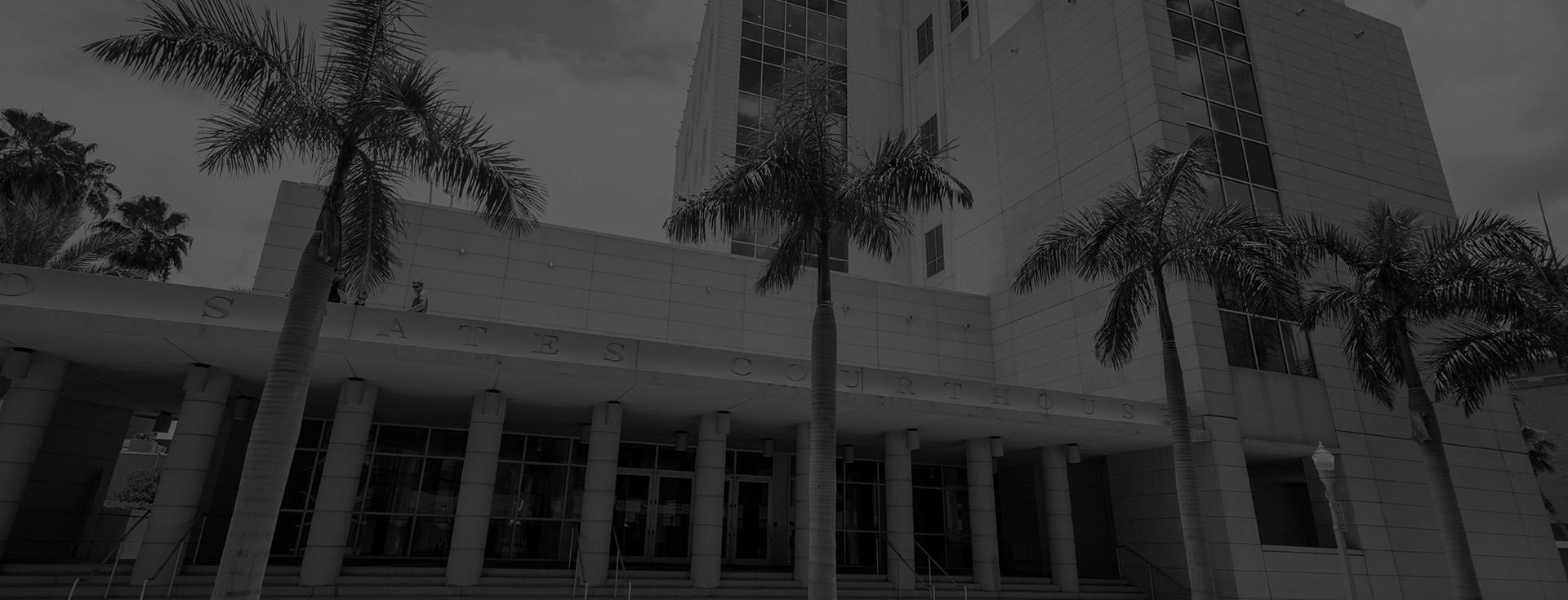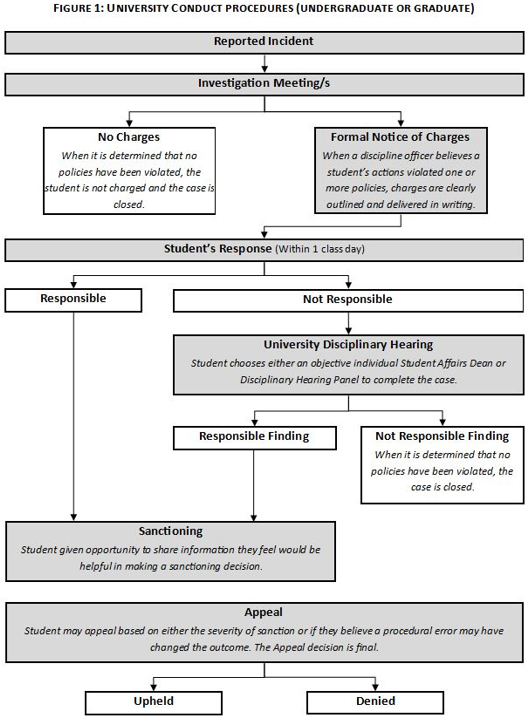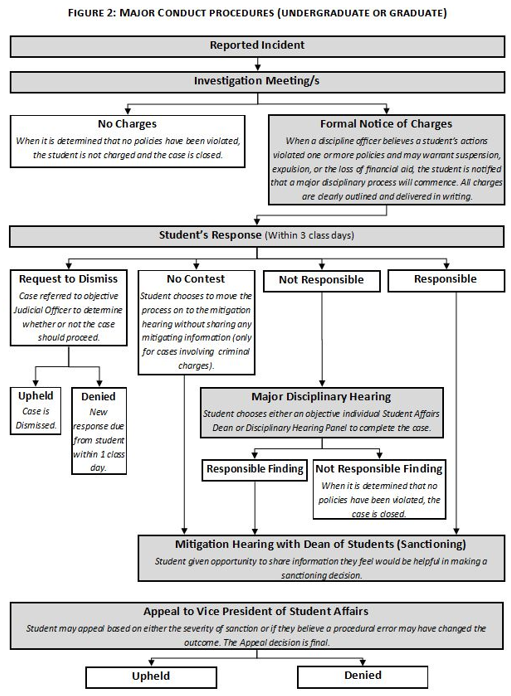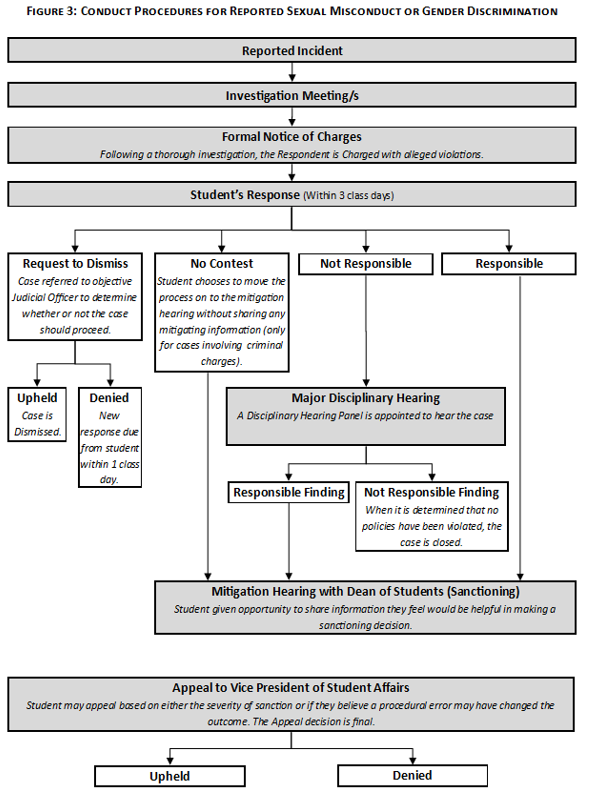
Your Case Deserves Immediate Attention - Call Hubbs Law Today
University of Miami Student Defense Attorneys
The University of Miami is one of the most prestigious universities in the State of Florida. Located in Coral Gables, FL, the University of Miami is home to almost 20,000 students from all different parts of the United States. The University of Miami has nearly 350 academic majors and programs including the Miller School of Medicine, the University of Miami School of Law, and the Rosenstiel School of Marine, Atmospheric, and Earth Science.
Like every university, the University of Miami has a detailed student code of conduct that governs the rules and regulations that each student must follow. When a student is accused of violating the code of conduct, it can be a pivotal point in time in the student’s life because a violation can result in punishment ranging from a reprimand to expulsion.
If you are a University of Miami student who is accused of misconduct, you don’t need to face these allegations alone. Hubbs Law represents students from all Florida colleges and universities including the University of Miami, Florida International University, Miami-Dade College, Barry University, St. Thomas University, Nova Southeastern University and more.
Call Hubbs Law today to at 305-570-4802 to schedule your consultation.
University of Miami Student Code of Conduct
The University of Miami Student Code of Conduct is entitled the “Students Rights and Responsibilities Handbook”. This document outlines each student’s rights, the university’s policies and procedures, and possible sanctions for misconduct.
There are a wide variety of complaints that can be made to a school ranging from allegations of cheating to serious crimes. Every student should take these allegations seriously as they could result in serious sanctions that will be explained below.
Here is a non-exhaustive list of prohibited conduct under University of Miami policy:
- Drinking Alcohol While Underage
- Driving Under the Influence (Link to DUI page)
- Public Intoxication
- Disorderly Conduct
- Possession of a Controlled Substance (Link to possession of controlled substance page)
- Distribution of a Controlled Substance (Link to sale/delivery of a controlled substance page)
- Bribery
- False Information to the University
- Gambling
- Harassment
- Hazing
- Retaliation
- Smoking and Use of Tobacco-Related Products on University Property
- Stalking (link to stalking page)
- Theft or Unauthorized Possession (link to theft page)
- Trespassing
- Damage or Vandalism to Property
- Possession of Weapons, Firearms, or Explosives (link to weapons or firearms page)
University of Miami Sexual Harassment and Sexual Misconduct Policy
The University of Miami’s Sexual Harassment and Sexual Misconduct Policy is also found within the “Students Rights and Responsibilities Handbook” (https://umiami-public.policystat.com/policy/16329326/latest/). Just like all universities, this policy is governed by the federal law, Title IX.
Title IX prohibits sexual or gender discrimination. This results in a wide range of prohibited conduct ranging from sexual harassment to sexual assault to domestic violence. Some of the conduct which is prohibited under this policy includes:
- Sex Discrimination
- Gender Discrimination
- Sexual Harassment
- Sexual Assault (link to sexual battery page)
- Domestic Violence (link to domestic violence page)
- Dating Violence (link to dating violence injunction page under domestic violence)
- Stalking (link to stalking violence injunction page under domestic violence)
- Retaliation
University of Miami Student Conduct Procedures
The specific procedure the student must follow depends on the type of allegation. There are essentially three types of procedures: University Level Student Conduct Procedures, Major Level Student Conduct Procedures, and Title IX Procedures.
Student Conduct Procedures
At the University of Miami, student conduct procedures are divided into two separate procedures depending on the alleged violation. Generally, “University Level Student Conduct Procedures” are reserved for minor violations of the student conduct code and “Major Level Student Conduct Procedures” are reserved for more serious violations. The Dean of Students, or their designee, make the determination whether a violation should be charged as a Major offense based on the nature of the reported violation and the student’s disciplinary history. The main difference between a University Level offense and a Major Level offense is that the latter can result in suspension or expulsion.
Initial Report and Investigation
Both student conduct procedures begin with an initial report. The reported incident can be made by anyone including a teacher, a student, or a third party that is not affiliated with the University. After a report is made, the University will schedule the student for an investigative meeting where a school official will explain to the student the nature of the violation and the student’s rights which will be explained later below. If the alleged violation is criminal in nature, this is a great time for the student to retain an attorney as anything that is said by the student during the investigative meeting could be used against the student in either the University case or a criminal case.
Charges
If the school official determines that a violation occurred, the student could receive a “Notice of Charge”. This notice is a formal document that will inform the student of their personal rights, the specific code violation they are charged with violating, and afford the student the opportunity to enter a response to the charge.
For University Level charges, the student can file a response stating they are responsible or not responsible for the alleged violation. If the student states he or she is responsible, then the case immediately proceeds to sanctioning where the school official will determine the appropriate punishment for the violation. The student is able to provide the school official with mitigating information prior to sanctioning.
If the student files a response that they are not responsible for the alleged violation, then the case proceeds to a student disciplinary hearing. The student has two options for a student disciplinary hearing. He or she can elect for the hearing to be held by a Student Affairs Dean or a Disciplinary Hearing Panel. The Student Affairs Dean will be a different school official than the person that conducted the investigation. A Disciplinary Hearing Panel is composed of three students and a Student Affairs Dean who will serve as the advisor to the panel.
In Major Level Student Conduct cases, there are additional options in responding to the Notice of Charge. In addition to entering a response of responsible or not responsible, the student is entitled to file a “Request to Dismiss” if the charged student believes that the University has not followed the student conduct procedures or there is no evidence at all to support the charged conduct. All requests for a dismissal must contain 1) the name, address, and telephone number of the person submitting the Request to Dismiss, 2) list and describe the charges brought against the student by the Student Conduct Officer, 3) specifically outline the basis of the Request to Dismiss, and 4) be signed by the person submitting the Request to Dismiss. If the school official, grants the Request to Dismiss, then the student’s case is over. If the Request to Dismiss is denied, then the student must submit a new response within one class day.
The new response must be responsible, not responsible, or no contest. No contest is an option for a student to who does not want to have a formal student disciplinary hearing but does not want to admit responsibility for the violation. A no contest response is not in any way to be construed as an admission of guilt or wrongdoing. It simply results in the case being set for a mitigation hearing where the school official will consider any mitigating evidence and issue sanctions.
Student Disciplinary Hearing
At the student disciplinary hearing, the University is required to prove by a “preponderance of evidence” that the violation occurred. In other words, the Hearing Panel or Dean would need to find that is “more likely than not” that the charged conduct occurred to make a determination of responsibility. During the hearing, the Hearing Panel or Dean would listen to the testimony of witnesses, review evidence, and listen to the testimony of the charged student if he or she chooses to testify.
The student disciplinary hearing is recorded. Students with possible criminal exposure should be aware that any statement made by them during the hearing could be used against them in both the University case and any subsequent criminal proceeding. It is advisable for any student to first speak with a criminal defense attorney prior to making the decision to testify.
Sanctions
If there is a finding after the hearing that the student is responsible for the charged conduct, the University will next determine the proper sanctions for the student. Prior to this time, the student has the right to submit mitigating evidence to the school. The school official will then weigh all the mitigating and aggravating factors related to the student’s case. After making this analysis, the following sanctions can be administered in University Level cases:
- Education Sanctions
- Disciplinary Warning lasting for a period of 1-2 semesters.
- Strict Disciplinary Probation lasting for a period of 1-3 semesters.
- Final Disciplinary Probation lasting until a student graduates or leaves the University.
- Termination of Residency: the forced cancellation of a housing contract.
- Change of Residency: the forced change of a room and/or building assignment for a housing contract.
- Restitution: the monetary repayment of the cost of an item that was taken or damaged by a student who is found to be responsible.
- Administrative Charge paid to the University in order to offset any costs accrued by the University in the investigation and adjudication of a student conduct case.
- Fine paid to the University to serve as a deterrent to similar future violations.
In Major Level cases, the following additional sanctions can be administered: - Suspension: a complete separation from the University for a predefined period of time.
- Expulsion: permanent dismissal from the University with no right for future readmission.
Appeals
Once a decision has been made as to sanctions by the University, the student has the right to appeal in certain circumstances. Only one appeal may be filed in a case. All appeals must be in writing and turned into the Office of the Senior Vice President for Student Affairs within three class days of the decision on sanctions.
There are only two grounds listed for appeals: 1) a procedural error in the investigation or hearing of a particular case; and 2) the sanction received is inadequate for the nature of the violation.
University Level Student Conduct Procedures

Major Level Student Conduct Procedures

Title IX Procedures
If the complaint alleges domestic violence, sexual misconduct, or sexual harassment, the student will likely need to follow the procedures under the University of Miami’s Title IX Policy. Title IX is a federal law that prohibits discrimination based on sex or gender in any education program or activity that receives federal funding.
While the Title IX procedures are similar to the Student Conduct Procedures, there are some slight differences and differences in terminology.
Initial Report
A Title IX investigation begins with a report of alleged sexual misconduct or domestic violence. A report can be made by any party including a student, university official, or third party that is not affiliated with the University. To file a report, the complainant will need to contact the Title IX coordinator in person, by phone, by mail, or by email.
Complaint and Notice of Allegations
The Title IX Coordinator will next ask the Complainant if he or she wishes the case to proceed through the formal student conduct process. The formal student conduct process involves a formal notice of charge, an investigation, and a formal hearing where the Complainant will need to testify. If the Complainant wishes to proceed through this process, then a formal written complaint (“Formal Complaint”) must be completed by the Complainant. The University will then send a written “Notice of Allegations” to the student clearly outlining the allegations being made, the name of the Complainant, and the relevant school policies regarding Title IX.
If a Complainant does not want to go through the formal student conduct process, then no Formal Complaint will be filed. However, the Complainant will still be offered supportive measures such as mental health services or a no contact order with the student. The University will also still meet with the accused student to remind them of university policies without making any findings or imposing any punitive action.
Investigation
Each investigation into an alleged Title IX violation shall be conducted by a Student Conduct Officer that is specially trained in Title IX investigations. The investigating officer shall not have any bias or conflict of interest with either the Complainant or student. Generally, Title IX investigation should take 30 days.
During the investigation, the Title IX investigator will review all reports, evidence, and speak to all witnesses related to the incident. The Title IX investigator will also schedule a meeting with the accused student. During the meeting, the student will have the opportunity, but is not required, to give a statement. After completion of his or her investigation, the investigator shall draft a full investigative report that shall be disclosed to the student at least 10 days prior to any final hearing.
Notice of Charges
If formal charges are filed against the student, the student will receive a written document that explains the policies involved and how the student has violated them. The Student Conduct Officer will then explain the student’s personal rights, that they have the right to make a statement, inform the student that the charges constitute a “Sexual Misconduct Offense” and the possible sanctions, inform the student of the specific code of conduct violations they are accused of violating, and afford the student an opportunity to make a response.
If a student receives formal notice of charges, then he or she has three class days to issue a response. Similarly to Major Level cases, a student has the option of responding responsible, not responsible, no contest, or requesting to dismiss.
Major Disciplinary Hearing
If the Complainant chooses to go through the formal student conduct process, then the case will be set for a Major Disciplinary Hearing. The University will make every reasonable effort to have the case heard by a “Disciplinary Hearing Panel” comprised of one student and one faculty member. In cases where students or faculty members are not available for an extended period, the case may be heard by an individual Student Affairs Dean.
At the major disciplinary hearing, the University is required to prove by a “preponderance of evidence” that the sexual misconduct or domestic violence occurred. In other words, the Panel or Dean would need to find that is “more likely than not” that the charged conduct occurred to make a finding of responsibility. During the hearing, the Panel or Dean would listen to the testimony of witnesses, review evidence, and listen to the testimony of the charged student if he or she chooses to testify.
The Title IX hearing is recorded. Students with possible criminal cases should be aware that any statement made by them during the hearing could be used against them in both the University case and any subsequent criminal case. It is advisable for any student to first speak with a criminal defense attorney prior to making the decision to testify or not testify.
Sanctions
If there is a finding after the hearing that the student is responsible for the sexual misconduct or domestic violence, the University will next determine the proper sanctions for the student. Prior to this time, the student has the right to submit mitigating evidence to the school. The school official will then weigh all the mitigating and aggravating factors related to the student’s case. After making this evaluation, the following sanctions can be administered in Title IX cases:
- Education Sanctions
- Disciplinary Warning lasting for a period of 1-2 semesters.
- Strict Disciplinary Probation lasting for a period of 1-3 semesters.
- Final Disciplinary Probation lasting until a student graduates or leaves the University.
- Termination of Residency: the forced cancellation of a housing contract.
- Change of Residency: the forced change of a room and/or building assignment for a housing contract.
- Restitution: the monetary repayment of the cost of an item that was taken or damaged by a student who is found to be responsible.
- Administrative Charge paid to the University in order to offset any costs accrued by the University in the investigation and adjudication of a student conduct case.
- Fine paid to the University to serve as a deterrent to similar future violations.
- Suspension: a complete separation from the University for a predefined period of time.
- Expulsion: permanent dismissal from the University with no right for future readmission.
- Academic Transcript Conduct Notations: a written notation on a student’s transcript that the conduct occurred.
Appeals
Once a decision has been made as to sanctions by the University, the student has the right to appeal in certain situations. A student may only file one appeal. All appeals must be in writing and submitted to the Office of the Senior Vice President for Student Affairs within three class days of the determination of sanctions.
There are only four possible grounds for appeals: 1) a procedural error in the investigation or hearing of a particular case that affected the outcome, 2) new evidence now available that could affect the outcome of the case, 3) allegations of bias or conflict of interest against the Complainant or the Respondent that could affect the outcome of the case, and/or 4) the sanction received is inadequate for the nature of the violation.
Title IX Sexual Misconduct Procedures

University of Miami Student Rights
The University of Miami Student Rights and Responsibilities Handbook lists specific rights granted to each student during the student disciplinary process. They are:
- The right to abstain from verbal participation;
- The right to an advisor who can be an attorney;
- The right to a support person;
- The right to reasonable, written notice of the charges and allegations upon which the charges are based;
- The right that of a presumption that no violation occurred;
- The right to a formal hearing;
- The right to review related information and question witnesses, and provide the same on their own behalf during a formal disciplinary hearing;
Additional Resources
The University of Miami “Students Rights and Responsibilities Handbook”. - Click the link to read the University of Miami’s Students Rights and Responsibilities Handbook which contains all student conduct and Title IX procedures for student disciplinary hearings.
Attorney for Student Defense at The University of Miami
At Hubbs law, we defend against allegations of student misconduct at all Florida universities including the University of Miami, Florida International University, Miami-Dade College, Barry University, St. Thomas University, Nova Southeastern University and more. Our attorneys are extremely experienced at handling school cases and can help you, or your family member, attempt to achieve the best possible outcome on the case.
Our attorney, E.J. Hubbs, is a former prosecutor (link to page) and board certified in criminal trial law (link to page). He has handled over 10,000 cases in his career and has the courtroom experience necessary to properly defend your case.
Hubbs Law handles all college student cases in Miami-Dade County including South Miami, North Miami, Coral Gables, Kendall, Miami Beach, Brickell, Homestead, Pinecrest, Palmetto Bay, Cutler Bay, and Hialeah, and Doral as well as other cities and counties surrounding the Greater Miami Area.
Call 305-570-4802 or contact us online today to schedule your first consultation today.

Attorneys E.J. & Erika Hubbs
As professional Miami criminal defense attorneys, we take every case personally give every client the deliberate care it deserves. Our clients become part of our family and we fight relentlessly for their rights. Read more about us to find out how we can help you.

-
Now my children and I are safe and I can’t say enough how amazing and attentive he was to my concerns.
Elena Varela -
"Erika Hubbs assisted our company in getting one of our future Venezuelan employees an 0-1 Visa. And she was successful !! Her knowledge of the industry and her determination was great asset in this lengthy and drawn-out process."Alisa H.
-
Happy Out of State Client
Michele D














